Recent Publications

Sondra Turjeman, Omry Koren: ARGuing the case for (or against) probiotics (Trends Microbiol .)
Antibiotic resistance is one of the leading medical challenges with which we are currently faced. Antibiotics, while powerful medical tools, also wreak havoc on the endogenous microbiota. Many believe that probiotics can restore the microbiota following antibiotic treatment and might even suppress the spread of antibiotic-resistance genes, but a recent study (Montassier et al.) suggests otherwise.
Boris Fichtman, Amnon Harel: Generation and characterization of iPSC lines from two nuclear envelopathy patients with a homozygous nonsense mutation in the TOR1AIP1 gene (Stem Cell Res . )
AP1 is an inner nuclear membrane protein encoded by TOR1AIP1. A homozygous c.961C > T loss of function mutation in TOR1AIP1 that affects both isoforms of LAP1 was recently described. This mutation leads to the development of a severe multisystemic nuclear envelopathy syndrome. Here we describe the generation and characterization of two human induced pluripotent stem cell (hiPSC) lines derived from skin fibroblasts of two patients carrying the homozygous c.961C > T mutation. These novel lines can be used as a powerful tool to investigate the molecular mechanism by which LAP1 deficiency leads to the development of this severe hereditary disorder.
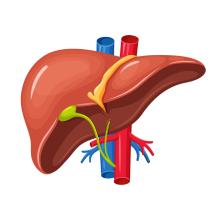
Amitai Bickel, Soliman Khatib, Eli Kakiashvilli, Eilam Palzur: Reappraisal of ischemia-reperfusion injury in a short duration laparoscopic surgery, a pilot study (BMC Surg . )
Serum biochemical changes during laparoscopic surgery and positive pressure pneumoperitoneum (PP) may reflect mild oxidative stress due to the ischemia-reperfusion (I/R) mechanism. However, there is still a controversy regarding the exact mechanism of PP in creating oxidative stress and whether the induction of PP causes I/R effects at all. To elucidate this debated issue, we studied, for the first time, the changes of I/R parameters in the serum, in a pilot study, during laparoscopic cholecystectomy using a reliable, independent exogenous oxidative biomarker, together with common intrinsic biomarkers of oxidative stress.
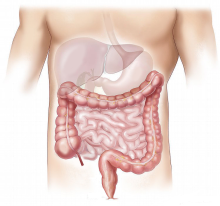
Adi Eshel, Omry Koren: Modifications in the Intestinal Functionality, Morphology and Microbiome Following Intra-Amniotic Administration ( Gallus gallus) of Grape ( Vitis vinifera) Stilbenes (Resveratrol and Pterostilbene) (Nutrients .)
This efficacy trial evaluated the effects of two polyphenolic stilbenes, resveratrol and pterostilbene, mostly found in grapes, on the brush border membrane functionality, morphology and gut microbiome. This study applied the validated Gallus gallus intra-amniotic approach to investigate the effects of stilbene administration versus the controls.
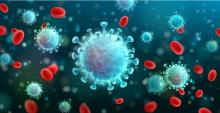
Ron Golan: Continuous Remote Patient Monitoring Shows Early Cardiovascular Changes in COVID-19 Patients (J Clin Med . )
COVID-19 exerts deleterious cardiopulmonary effects, leading to a worse prognosis in the most affected. This retrospective multi-center observational cohort study aimed to analyze the trajectories of key vitals amongst hospitalized COVID-19 patients using a chest-patch wearable providing continuous remote patient monitoring of numerous vital signs.
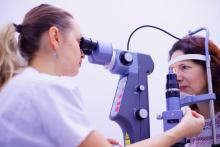
Yuval Cohen: Reappraisal of the historical myopia epidemic in native Arctic communities (Ophthalmic Physiol Opt .)
This study was developed to explain the extraordinary rise in myopia prevalence beginning after 1950 in Indigenous Arctic communities considering recent findings about the risk factors for school myopia development. Myopia prevalence changed drastically from a historical low of less than 3% to more than 50% in new generations of young adults following the Second World War. At that time, this increase was attributed to concurrent alterations in the environment and way of life which occurred in an aggressive programme of de-culturalization and re-acculturation through residential school programmes that introduced mental, emotional and physical stressors. However, the predominant idea that myopia was genetic in nature won the discussion of the day, and research in the area of environmental changes was dismissed. There may have also been an association between myopia progression and the introduction of extreme mental, emotional and physical stressors at the time.
Elizabeth Eshel: Comparison of a modified flow cytometry osmotic fragility test with the classical method for the diagnosis of hereditary spherocytosis (Cytometry B Clin Cytom . )
Hereditary spherocytosis (HS) is the most common inherited hemolytic anemia. The flow cytometric test using eosin-5'maleimide (EMA) is a well-established diagnostic method. However, in order to improve HS detection, it is recommended that EMA and an osmotic fragility test (OFT) both be performed. OFT is time consuming and labor intensive. We used a flow cytometric (FOFT) adaptation of the classical OFT reported by Yamamoto. We compare the FOFT to the classical OFT including practical data and propose options for simplifying this method.
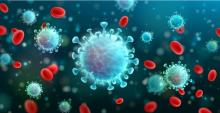
Avi Benov: The value of tracheostomy of critically ill COVID-19 patients - A multicentral studyAm J Otolaryngol . )
Tracheostomy is an aerosol-generating procedure, thus performing it during the COVID-19 pandemic arises considerations such as the most appropriate timing and the patients to whom it is suitable. Medical teams lack sufficient data to assist determining whether or not to conduct tracheostomy, its short- and long-term implications are not fully understood. This study aims to shed light on the critically ill COVID-19 patients that require tracheostomy, and to investigate its value.
Andrei Braester, Ety Shaoul, Oded Mizrachi, Luiza Akria, Liron Shelev, Masad Barhoum: Patient Involvement in the Transfusion Decision-Making Can Change Patient Blood Management Practice for Better or Worse (Acta Haematol .)
Red blood cell transfusion (RBCT) is a therapeutic procedure with important and undesirable secondary effects. Inappropriate overuse of RBCT is significant, and a significant percentage of physicians prescribe RBCT unnecessarily. Patient involvement in treatment decision-making is poor worldwide. Shared (with the patient) transfusion decision-making (TrDM) can temper a "quick finger on the trigger" of blood transfusion (BT). The objective of this study was to determine patients' preferences surrounding their involvement in the TrDM process as well as physicians' willingness to involve the patient in TrDM. The study also determined the role of patient age, gender, ethnicity, and schooling years in the TrDM process

Shemy Carasso, Fabio Kusniec, Ibrahim Marai, Offer Amir: The Relationship Between Body Mass Index and In-Hospital Mortality in the Contemporary Era of an Acute Myocardial Infarction Management (Vasc Health Risk Manag . )
The association between body mass index (BMI) and clinical outcomes following an acute myocardial infarction (AMI) remains controversial. Our objective was to investigate the relationship between BMI and AMI presentation, in-hospital clinical course and mortality in the contemporary era of AMI management.

Moran Titelbaum, Boris Brant, Daniel Baumel, Alina Burstein-Willensky, Shira Perez, Yiftah Barsheshet, Orly Avni: Ezh2 harnesses the intranuclear actin cytoskeleton to remodel chromatin in differentiating Th cells (iScience .)
Following their first interaction with the antigen, quiescent naive T-helper (Th; CD4+) cells enlarge, differentiate, and proliferate; these processes are accompanied by substantial epigenetic alterations. We showed previously that the epigenetic regulators the polycomb-group (PcG) proteins have a dual function as both positive and negative transcriptional regulators; however, the underlying mechanisms remain poorly understood. Here, we demonstrate that during Th cell differentiation the methyltransferase activity of the PcG protein Ezh2 regulates post-transcriptionally inducible assembly of intranuclear actin filaments.
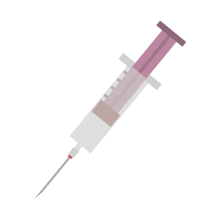
Sophia Eilat-Tsanani:Uptake of pneumococcal vaccination in older people in northern Israel (Prev Med Rep . )
The 23-valent pneumococcal vaccine is recommended for people aged 65 years and over, to prevent pneumonia, a leading cause of infectious morbidity in older people. This study assessed pneumococcal vaccination in people aged 65-74 years living in northern Israel who were eligible for the pneumococcal vaccine since introduction free of charge.



